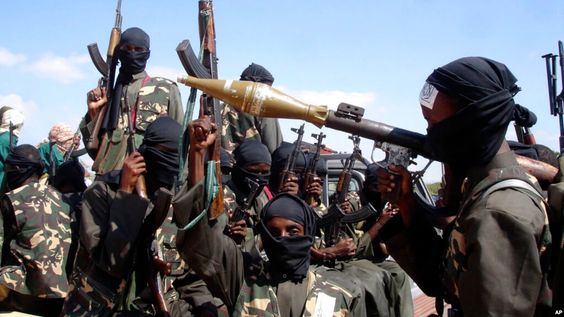Africa
Somalia bans firearms from Mogadishu’s streets

On Friday, Somalia’s president, Hassan Sheikh Mohamud, declared that his nation has outlawed carrying guns on the streets of Mogadishu.
“We strictly forbid anyone from carrying weapons on the streets of Mogadishu. Rocket-propelled grenades in the streets and machine guns placed on trucks cannot be justified as a kind of defence against a concealed al-Shabab fighter with a handgun “declared the president.
The restriction was proclaimed by the president during a sermon delivered on Friday within his Mogadishu presidential complex.
He declared that disobeying the prohibition would not be accepted.
He threatened anyone who disregarded the rules, saying, “We will battle against them.”
Moreover, Mohamud has prohibited the importation of any sort of military equipment, including uniforms, boots, and equipment.
“No businessman is permitted to enter the nation with any form of military equipment, let alone weapons. Even the traders are unable to bring in Any Big cars, “added the president.
In Somalia, a Toyota truck type known locally as Abdi Bile is well-known for being the best at mounting self-propelled anti-aircraft cannons. It is named after a Somali American runner who won the 1,500-meter World Championship in Rome in 1987.
a move to regain stability
Since the fall of the Siad Barre military dictatorship in 1991, Mogadishu has had solid security arrangements; some security analysts consider the initiative as a major step towards restoring peace in the city.
“There hasn’t been a single trustworthy security strategy that has aided in the stability of the city since the fall of the military dictatorship. Now, removing guns from public spaces is a step in the right direction, “said General Mohamed Farah Aliyow, a retired Somali military officer and security expert living in Toronto.
Media Availability in Somalia’s Conflict with Al-Shabab is a Problem
Before the civil war, the heavily populated beachfront metropolis of Mogadishu was referred to as the White Pearl of the Indian Ocean.
The corporate community has established its own security teams over time to safeguard their people and assets. The city is overrun with firearms as MPs, government officials, and private security guards all have highly armed guards of their own.
In some parts of the city, it is still possible to purchase firearms and other small guns, but less openly than in the past.
The government pursues al-Shabab
Government media reported that the second phase of the government’s conflict with al-Shabab terrorists had started in the Central Somalia province of Hiran hours before the announcement of the weapons restriction.
Government representatives announced the conclusion of an eight-month military campaign against al-Shabab insurgents last week.
The Somali National Army, along by local clan militias, carried out military operations early on Friday to retake numerous communities in the Hiran area from the extremists.
According to Hiran regional governor Ali Jeyte Osman, “The freed regions have been al-Shabab militants’ hideouts but not strong bases; we will follow them to their strongholds in the West of Beledweyne town.” “Al-Shabab fighters are cowards who can’t face the army and the locals,” I have said before and will do so again.
According to the US ambassador, Osman, al-Shabab has lost a third of its territory. The army has taken control of the villages of Berhano, Tarejento, Burdaar, and Nuur-Fanah, which are south of Beledweyne, the focal point of local community mobilisations against al-Shabab. Over 300 kilometres separate Beledweyne from Mogadishu.
The first phase of military operations, which lasted from August 2022 through January 2023, resulted in 3,000 al-Shabab terrorist deaths and 3,700 more injuries, according to the Somalia Ministry of Information on March 25. The administration added that al-Shabab had been driven out of 70 towns and villages.
The insurgent organisation said that local fighters and the Somali government’s initial military efforts had failed. Independent sources have never verified any of the claims made by either side, particularly the number of battle fatalities.
Hussein Sheikh Ali, the president of Somalia’s national security adviser, stated in an interview with VOA’s Somali Service in March that the three neighbouring nations of Djibouti, Ethiopia, and Kenya would send new troops to support Somali forces against al-Shabab in the second phase of the military operations, though it is unknown when these troops will arrive.
From Mogadishu, Abdiaziz Ahmed contributed to this story.
